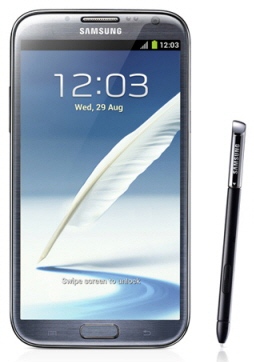Samsung and Nokia: Tomorrow's Apple and BlackBerry?

Apple is the sole source of iOS devices and BlackBerry is the only maker of BlackBerry OS/10 smartphones. But the rest of the mobile world also looks to be moving toward a dominant manufacturer for each mobile operating system.

As James Kendrick stated, Samsung is Android, and, as we see in market share reports, Nokia is Windows Phone. Can the likes of HTC, Huawei, LG, Asus, and Motorola continue to compete against these behemoths?
Samsung
Reports this week indicated that Google is worried about Samsung's dominance because it fears that Samsung might try to renegotiate its commercial terms. While data shows that Samsung ships the majority of Android smartphones and has the one true device that consumers consider over the iPhone, currently the Galaxy S III, there are other players that have better designs and lower-cost phones for the new smartphone owner.
Samsung is dominant with Android, but also has Tizen plans. They have just dabbled in Windows Phone, but if this platform ever takes off, they could carpet bomb the market with phones potentially running on three mobile platforms.
Nokia
Nokia is serious about getting Windows Phone devices into the hands of consumers at every price point, and its announcement at Mobile World Congress (MWC) 2013 of the Lumia 520 and 720 continues to fill out its lineup. Nokia not only offers compelling hardware, but distinguishes itself from the others with value-added software and services.
There has been talk in the past of Microsoft purchasing Nokia, and as Nokia continues to dominate the Windows Phone market, this idea doesn't seem that far-fetched.
Is either really likely?
Apple has shown that having control over the hardware and software has its advantages, and in the past BlackBerry demonstrated the same success. Can this same model be applied to Android and Windows Phone? Windows Phone seems more likely to me, since it is a very controlled platform, like iOS, and Nokia is so dominant in this market. Android has many more players, and is marketed as a more open platform, so even with Samsung's dominance I don't see Android becoming a single manufacturer platform anytime soon. I don't want to see that either as companies like HTC, LG, and Motorola are making better hardware now and have compelling offerings.
Related stories